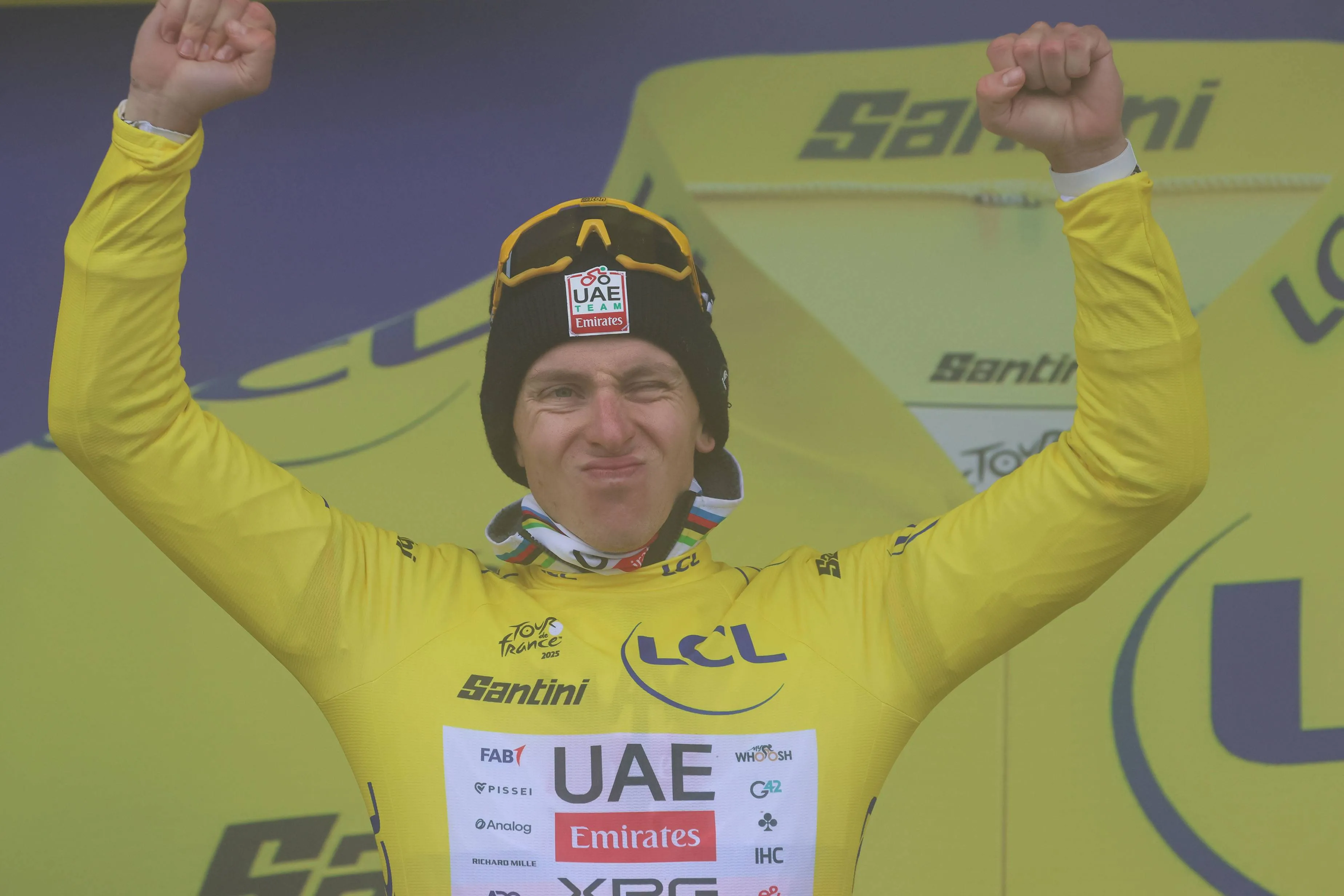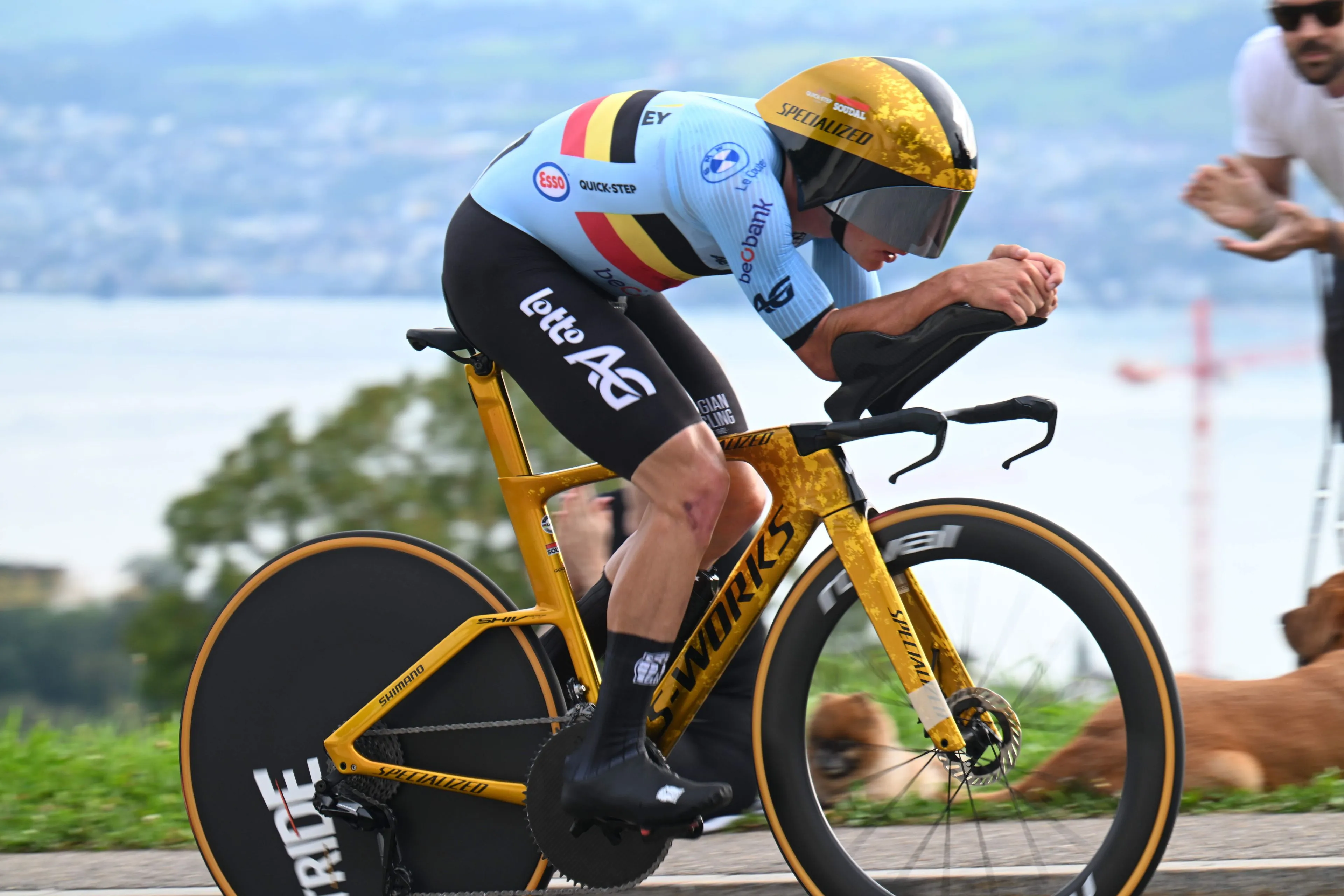Worlds in Rwanda are medical mega-puzzle, but Belgian team doctor fears one thing above all else: "That’s when we evacuate"
CyclingThursday, 18 September 2025 at 18:42
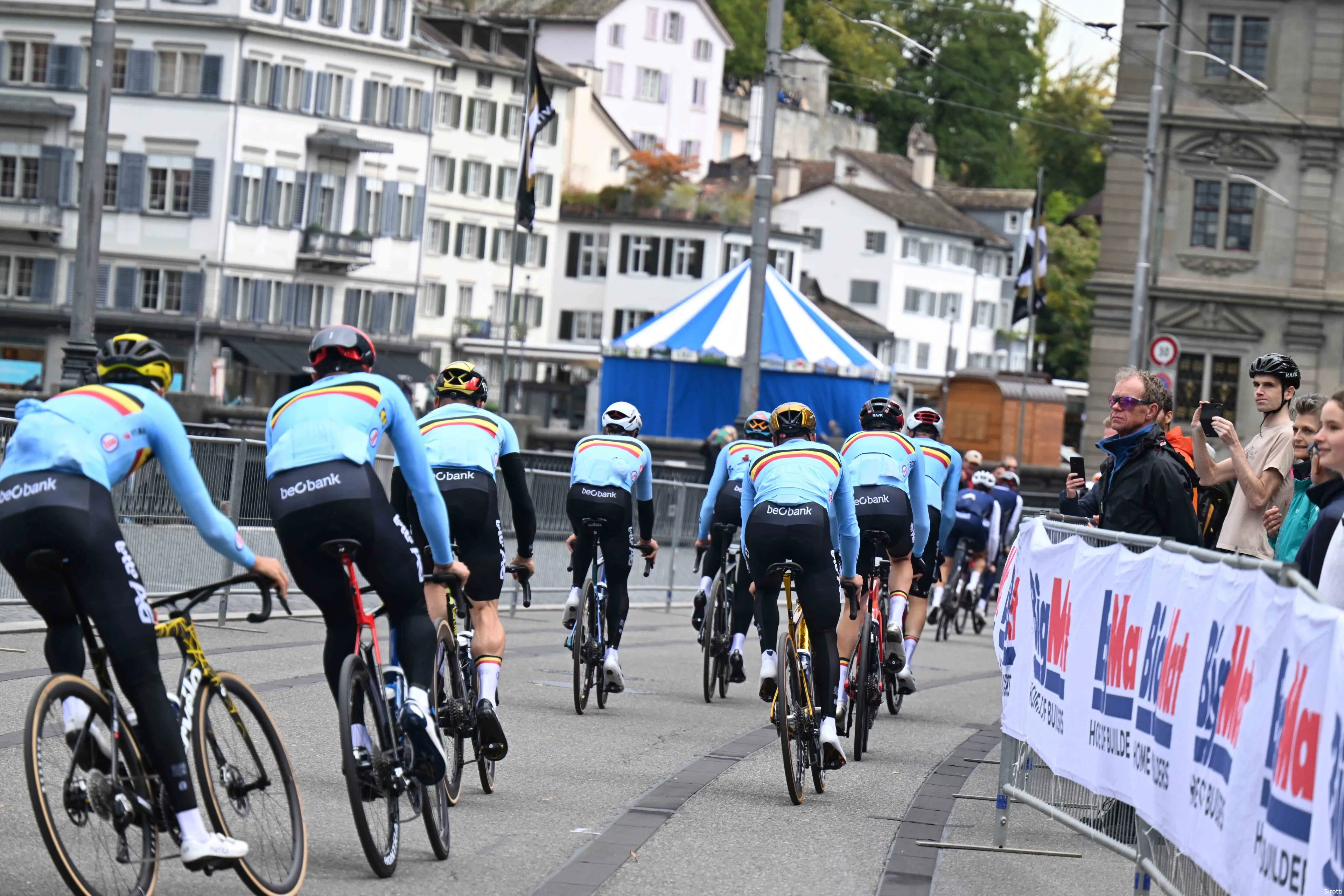
On Thursday, the first Belgian delegation will travel to Rwanda for the UCI Road World Championships. Remco Evenepoel, Florian Vermeersch, Ilan van Wilder, and Marthe Goossens are the riders competing in Sunday’s time trial and are therefore heading there early. But what do they need to consider medically? A whole lot, as Belgian national team doctor Kris Van der Mieren told HLN.
ADVERTISEMENT
“We started preparing for these World Championships a year ago,” Van der Mieren begins. The process began with the proper vaccinations. A quick look at the GGD (Public Health Service) website shows that vaccines such as Yellow Fever, DTP (diphtheria, tetanus, polio), and Hepatitis A are recommended, along with others like Mumps, Measles, and Rubella, which are typically already covered.
“Vaccination is not mandatory, but it is strongly recommended,” says the Belgian team doctor. “There was very little discussion; there are no anti-vaxxers in the group.” Potential side effects were also taken into account. “I can speak for the whole group: everyone started on time.”
ADVERTISEMENT
Due to the high risk of malaria in Kigali, vaccinations alone won’t be enough. The riders must take a daily pill to reduce that risk. An infection could have lasting consequences. “Everyone has been briefed on that too,” Van der Mieren adds.
Continue reading below the photo!
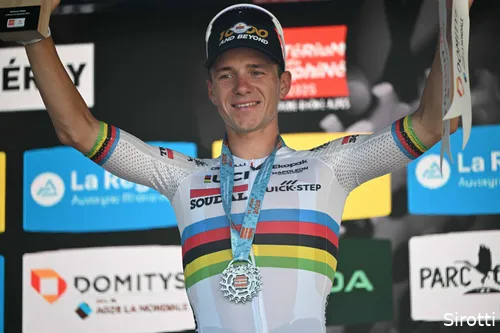
ADVERTISEMENT
Malaria, drinking water, salmonella ...
No worries for anyone who forgets their pills, because Van der Mieren is bringing spares himself. Double-checked, of course. “Last week, I spent a morning checking all expiration dates. I also compared the list with what I brought to Wollongong, Australia, in 2022: there’s barely any difference.”
What is different from Wollongong, however, is the abundance of mosquito sprays and nets. Those are absolutely essential, Van der Mieren emphasizes. “Most tropical diseases are spread by mosquitoes. Prevention is key. We’ll be spraying and applying repellent 24/7. I’ll also recommend everyone wear light-colored clothing, which tends to repel mosquitoes more than dark clothes.”
Next issue: Rwanda’s tap water isn’t safe to drink everywhere. The Belgian delegation will take zero risks. “The quality isn’t guaranteed. So we’re not taking chances. Washing is fine, but for everything else we’ll use bottled water or boil it first.”
Even vegetables will be rinsed with pre-heated water, as salmonella must be avoided at all costs. “Our cooking team has a very important job. They’ll have a lot of extra work. It’s entirely possible that by the end of the World Championships, they’ll have burned more calories than our riders,” says Van der Mieren.
ADVERTISEMENT
Continue reading below the photo!
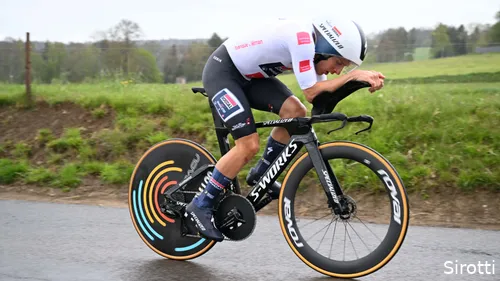
Team doctor’s biggest fear: "An untreated infection is always fatal"
The riders will also have to return, in a way, to COVID-era protocols: the Belgians want to minimize handshakes. “Because through water, things can enter the body that can then be passed on through physical contact. The local population has some resistance, but we Europeans, with our extreme focus on hygiene, are not resistant.”
Still, there’s one thing Van der Mieren fears above all: rabies. “That’s my biggest fear,” the doctor admits. “Actually, it’s my only real fear. The chance of being bitten by a rabid dog is tiny, but if it happens, and it’s a serious bite, then it’s full emergency mode.”
ADVERTISEMENT
In such a case, every alarm would go off. “That is when we evacuate. An infection that’s not treated is always fatal. But if you act fast and treat it intensively with the right medication and wound care, it doesn’t have to be. But that’s a job for specialists.”
Should that scenario become reality, Van der Mieren is already in close contact with other doctors. “I know exactly which hospitals we can go to over there. That was my very first question when Rwanda was announced as the World Championships host. We also have a WhatsApp group with all the team doctors from participating nations and the UCI’s head doctor.”
Read also
IDL-productions
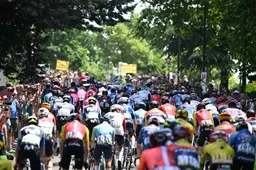
Vacancy: Growth Editor IDL Procycling - (native) English
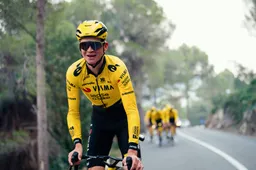
Tour of Oman 2026 | Visma | Lease a Bike and UAE’s ‘sherpas’ take up the challenge

Winning machine Wiebes may get fewer chances at SD Worx-Protime after dream year

Hungrier, more eager and more in love than ever: Lotte Kopecky wants to hit back hard after failed experiment
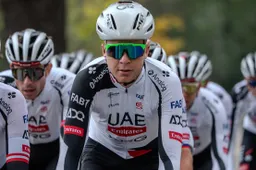
Gravel world champion Florian Vermeersch wants to take next step in the Classics — with and without Tadej Pogacar
Latest Cycling News

Vacancy: Growth Editor IDL Procycling - (native) English
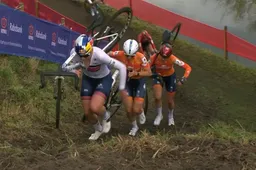
Elite debutant finishes third in the UAE Tour just five days after cyclo-cross World Championship
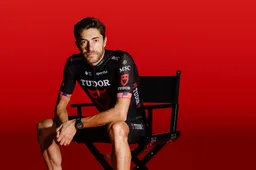
Tudor road captain tips 2026 breakthrough and predicts success for Hirschi, Storer and the Dutch riders
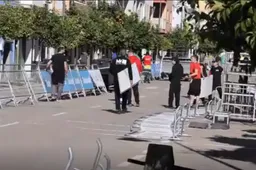
Evenepoel and Uijtdebroeks relieved after Valencia time trial ruling, but others furious: “It makes no sense”
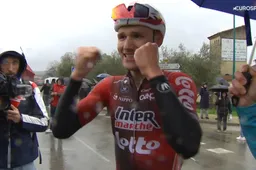
Unknown to the wider public — but not for long: who is ‘Groenewegen slayer’ Kockelmann?
Popular Cycling News
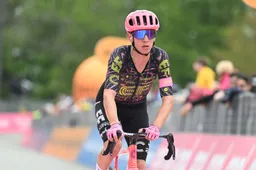
Former pro cyclist, who became an OnlyFans model after being sacked by EF Education-EasyPost, arrested in Italy
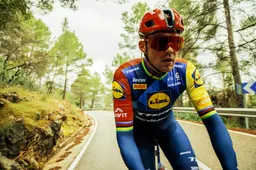
Mads Pedersen taken to hospital after crash forces early abandon at Tour of Valencia

Evenepoel and Uijtdebroeks relieved after Valencia time trial ruling, but others furious: “It makes no sense”
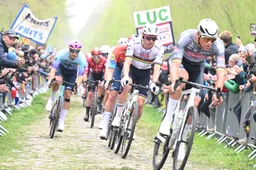
Jens Voigt: ‘It’s almost impossible for Pogacar to beat Van der Poel’
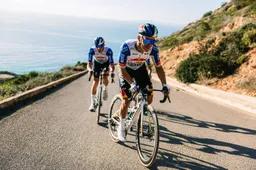
Girmay didn’t expect it, but this is why Evenepoel and Red Bull lit the fuse in Valencia straight away
Latest Comments
- Nice!Bea22-01-2026
- Those events are mental rest for him. Fun, without expectations. *Sagan lost his abilities because he gained weight and got lazy. Pogi will likely retire before that has a chance at happening.Veganpotter14-12-2025
- Ah, the consequences of riding for Israel.Veganpotter11-12-2025
- Pidcock could follow everyone but Pogi while finishing 3rd. No second place rider this season😃Veganpotter16-11-2025
- Now the Palestinian protestors can stop their whining. Trump came to the rescue. So they can now STFU and go back to waving the rainbow flags.raufus15-10-2025
- Cracked the code lol. If it was that easy to 'crack the code' jonny Vegas would be charging up the Kwaremont giving Pog a dose of his medicine. Evenepoel can't match pog on a climb and neither can mvdp. Anything with a half difficult climb and Pog smashes the field. Even on flat(ish)parcours like Roubaix it came down to a mistake and crash by pog to definitively crown mvdp. MSR is the only one that Pog probably won't win.kevpt10-10-2025
- We've seen this movie before. I think Pogacar is doping.DeadBlow10-10-2025
- 👍Bea08-10-2025
- 👌🏻Bea08-10-2025
- What the data doesn't show is how much of an effect drafting had for evenepoel. Pogacar went with del toro at 100km whilst Evenepoel was still in the bunch. Despite the bike changes he still had a lot of assistance getting back to the bunch. Pogacar then rode 60km solo whilst evenepoel rode with Healy/Skjelmose until going solo in thd last 10-15km. Thats ~20% less power / energy requirements for 45-50km. Apples and oranges...kevpt30-09-2025
Loading

